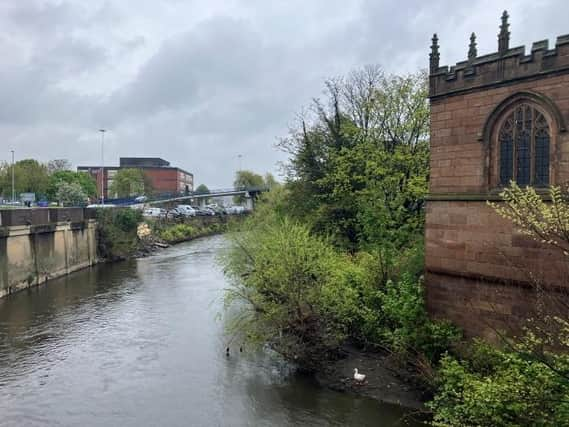Huge spikes in raw sewage flowing into Rotherham rivers


New data analyses have revealed that Yorkshire Water dumped vastly more raw sewage into Rotherham’s rivers in 2023 than previous years.
The top ten most polluting sewer waste overflow spots in Rotherham and Dearne Valley suffered a combined 17,425 hours of sewage discharges last year - more than triple the number of hours that sewage overflowed in those locations in 2022.
Advertisement
Hide AdAdvertisement
Hide AdYorkshire Water, the private water company that manages sewage across South Yorkshire, including all of the most polluted spots in Rotherham, has been ranked the second worst polluting water company in the UK in 2023. Earlier this month, the company paid £150,000 to Sheffield and Rotherham Wildlife Trust for “unauthorised sewage discharge”.
Some of the overflow locations experienced humongous spikes. At Swinton Sewage Treatment Works, spillage was up 700 per cent - raw sewage flowed into the River Don for 2,576 hours in 2023 but only 322 hours in 2022. Wath Upon Dearne Wastewater Treatment Works saw a 633 per cent increase, from 151 hours in 2022 to 1,107 hours in 2023. At the Wentworth Sewage Treatment Works, which saw a 268 per cent increase in dumpage, sewage streamed into the River Don for a whopping 3,789 hours in 2023 - that’s 158 days of continual sewage overflow.
In addition to the spike in the number of hours sewage discharged in Rotherham rivers, there has also been a sharp increase in the number of times sewage overflowed at each location. The Environment Agency is required to inspect all discharge locations that have over 60 overflows in a year - all of Rotherham’s top ten sewage dump spots exceeded that number last year. In 2023, sewage overflowed 203 times at Ravenfield village’s sewage treatment works, up from 118 times in 2022. Wentworth’s Sewage Treatment Works overflowed 198 times, up from 99, and at Swinton Sewage Treatment Works it was 169 times, up from 62.
Yorkshire Water reports that the reason for these overflows is largely a combination of two issues: exceeding the amount of sewage the system can handle and failing to adequately maintain assets.
Advertisement
Hide AdAdvertisement
Hide AdThe heavy rain this year certainly played a role, as 2023 was the sixth wettest year since Met Office record-keeping started in 1836. Regardless of rainfall levels, however, the
Environment Agency holds water companies accountable.
In a recent report on storm overflow , the agency said: “Heavy rainfall does not affect water companies’ responsibility to manage storm overflows in line with legal requirements”.
Ed Shaw, managing director of Don Catchments Rivers Trust, agreed: “We’d like Yorkshire Water to raise their game. We really need a sewage system that’s fit for the future, that’s climate-proof.”
Scientists have found that climate change is increasing the amount of rain that falls in England – the warmer air that comes with a warming planet holds more water vapour,
Advertisement
Hide AdAdvertisement
Hide Adwhich leads to more rain and bigger floods. As climate change gets worse and England gets increasingly drenched, South Yorkshire’s raw sewage overflow problem will get worse along with it.
“We need investment in our sewer network in order to be able to handle this kind of weather,” said Mr Shaw.
In the fall, Yorkshire Water announced a water bill hike of £150 a year until 2030 across all residences in South Yorkshire to fund improvements to the sewer network.
Yorkshire Water said: “We are investing £180m across Yorkshire to begin reducing the operation of storm overflows. This programme of work is due to be completed in April 2025 and we already have projects in delivery around the region, which include increasing storage in the network, implementing sustainable urban drainage solutions and wetland treatment solutions, removal of surface water from the combined system and making changes to the operation of some of our treatment works.
Advertisement
Hide AdAdvertisement
Hide Ad“In addition, we have submitted plans to Ofwat [the organisation that regulates private water companies] for approval outlining a £1.19bn investment to reduce the operation of
storm overflows.”
The increases in raw sewage discharge have been drastic across England, with a doubling of storm overflow across the country from 2022 to 2023. The north of England has had the worst spikes. The situation has gotten so bad that Liberal Democrat leader Ed Davey recently called for the country to declare a national environmental emergency.
If you would like to help monitor and report sewage dumping in your local river to the Environment Agency, the Sheaf and Porter Rivers Trust is recruiting River Rangers for rivers in Rotherham. Contact them at sheafportertrust.org to get involved.